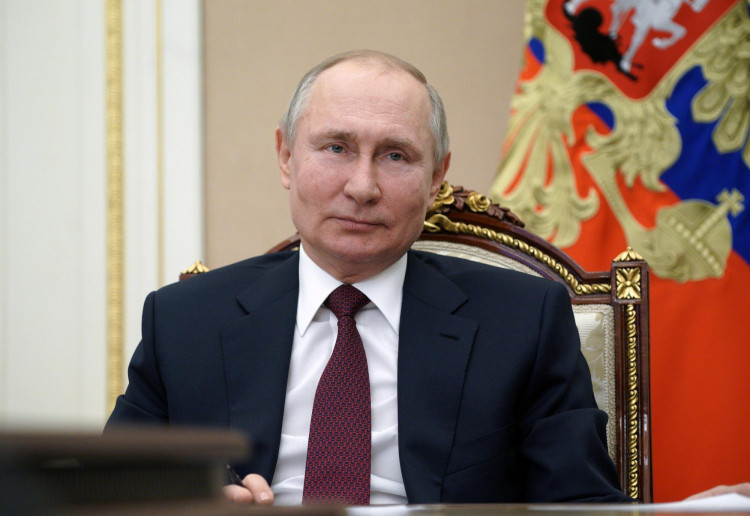Russian President Vladimir Putin has secured a landslide victory in the country's stage-managed election, cementing his grip on power until at least 2030. According to preliminary results reported by Russia's Central Election Commission (CEC), Putin led with 87.3% of the vote after half of the ballots were counted. The election, which was devoid of credible opposition, saw most opposition candidates either dead, jailed, exiled, or barred from running.
The election ritual, while not considered a genuine democratic process by the Kremlin itself, is crucially important to Putin as a means of confirming his authority. The president, who has ruled Russia since the turn of the century, is now set to become the country's longest-serving leader since Soviet dictator Joseph Stalin. In a victory speech at his election headquarters, Putin declared that the election had "consolidated" national unity and that Russia had "many tasks ahead" as it continues its confrontation with the West.
The election was held just a month after the death of Alexey Navalny, Putin's most formidable opponent, in an Arctic penal colony. In an unprecedented move, Putin broke his tradition of not uttering Navalny's name and discussed his death, confirming discussions over a potential prisoner swap involving the opposition figure. "The person who spoke to me had not finished his sentence yet when I said I agree," Putin said, adding that the only condition was that Navalny would not return to Russia.
Despite the Kremlin's warnings against unsanctioned gatherings, acts of defiance marked the election. Navalny's widow, Yulia Navalnaya, urged Russians to turn out collectively as a show of opposition on the final day of voting. CNN reporters in Moscow witnessed growing queues outside polling stations at midday as part of the "Noon Against Putin" demonstrations. Similar protests were staged at Russian embassies across Europe, with large crowds gathering in London, Paris, and elsewhere.
The election was also marred by more graphic acts of defiance, with at least 15 criminal cases filed after people poured dye in ballot boxes, started fires, or lobbed Molotov cocktails at polling stations. More than 60 Russians were detained across at least 16 cities on the final day of voting, according to independent human rights group OVD-Info.
Russia also held the presidential election in four Ukrainian regions it annexed during its full-scale invasion, a move that Ukraine denounced as a violation of international law. Evidence of voter coercion emerged, with videos showing Russian soldiers accompanying election officials as they went house-to-house to collect votes.
The election comes after more than two years of war, which have exacted huge costs on the Russian population. Western officials believe more than 300,000 Russian troops have been killed or injured on the battlefields of Ukraine. Putin, responding to a journalist's question about the possibility of European forces being sent to Ukraine, warned that such a move would be "one step from the third World War."
Despite the war's impact on Russia's economy and international standing, Putin's critics accuse him of inventing foreign policy problems to distract from his government's inability to solve the country's domestic issues. The Levada Center, a non-governmental polling organization, reports that nearly half of Russians strongly support the war in Ukraine, and more than three-quarters are somewhat supportive. Putin's approval rating, according to Levada, stands at over 80%, a substantial increase compared to the three years before the full-scale invasion of Ukraine.
As Putin tightens his grip on power, he vows to strengthen the military and resolve the Ukraine conflict. The election outcome, while expected, confirms that Russia's future will be shaped by Putin's vision for years to come, with the country's path increasingly diverging from that of the West.
REUTERS and CNN also contributed to this report.




